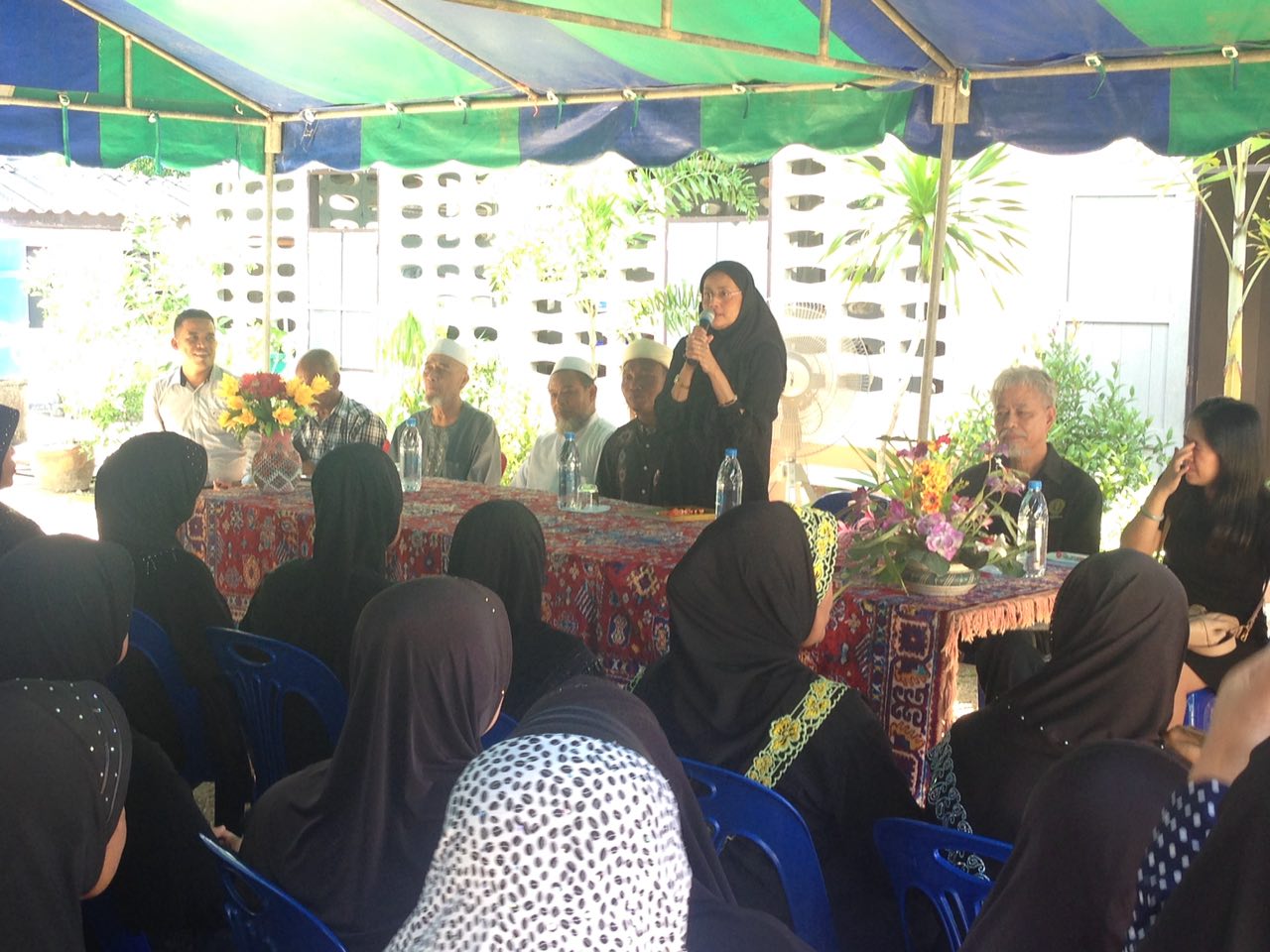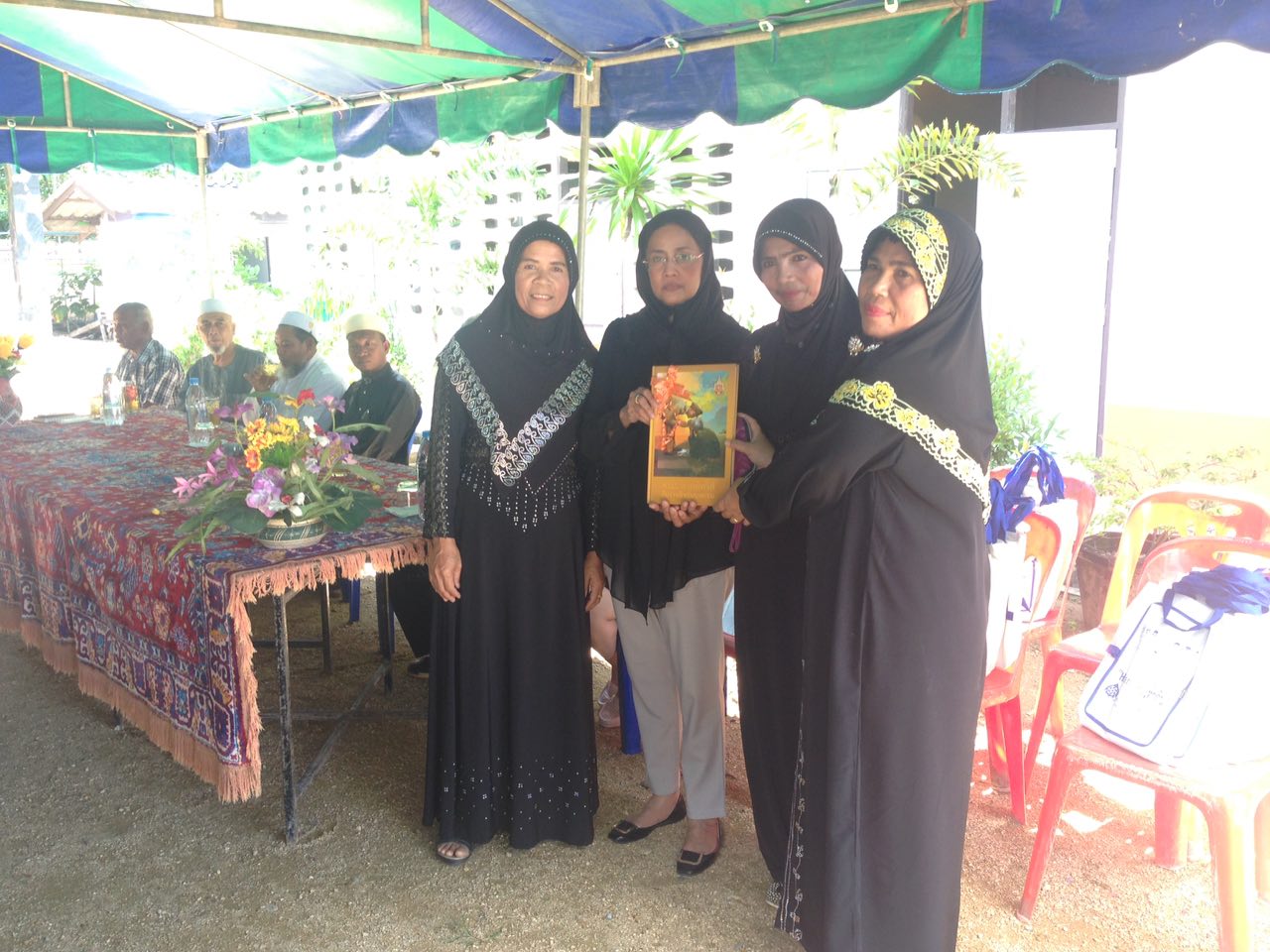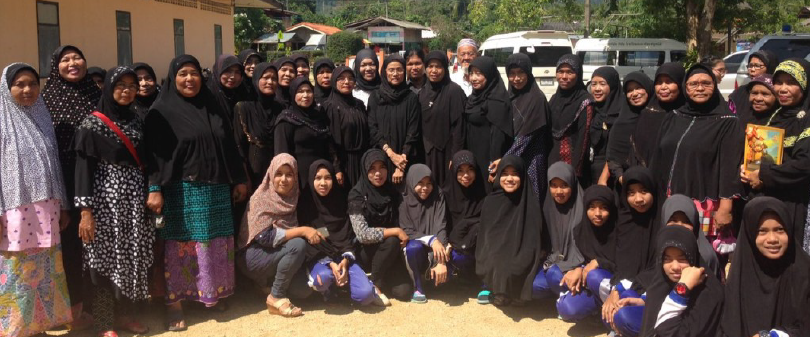PUBLIC STATEMENT
National Human Rights Commission of Thailand and Protection International conducted a field visit to community-based HRDs that are at risk in Phatthalung Province.
On 2 November 2016 Protection, International conducted a field visit to Pabon District, Phatthalung, together with the Sub-Committee on Civil Rights of the National Human Rights Commission of Thailand (NHRC), to investigate the situation, meet with community-based WHRDs and HRDs and share findings with the local authorities and security forces at provincial level.
Community-based HRDs have been facing recurrent threats and violence with total impunity since they started protesting against a dam and reservoir project in the District of the Mueang Ta Kua River and Pabon District. They came together in a conservation community group called People’s Network to Protect Ton Sa Tor Watershed (PNPTSTW) to defend their rights, local livelihood, and natural watershed which they claim have been put at risk by this project that lacked proper consultation with the community. They are also concerned about the damage caused by the project to the local environment and the risks of expulsion the villagers face. They fear that this project will probably claim more land than initially stated, especially when the community’s needs could be satisfied by fixing existing water pipes.
The NHRC Delegation was led by Mrs. Angkhana Neelapaijit, Chair of the Sub-Commission on Civil and Rights. The NHRC had previously inquired about the situation. The UN Office of the High Commissioner for Human Rights (UNOHCHR) raised concerns about the safety of Mr. Suwit Jehsoh in 2015 when they observed a pattern of persecution and physical abuse in what is in their view an extremely severe case. Suwit is an advisor to the Conservation Group and Director of a local school, the Ban Klong Yai School. In a major accident on 28 December 2014 at around 24:00 he was the victim of an armed ambush from which he survived. Before that, he had received warnings from an influential group to “stop getting involved with the construction of the reservoir” and life-threatening messages that his “cremation is forthcoming”.

Like Suwit, other members of the conservation group have been victims of serious incidents of violence and ongoing intimidation that have worsened in recent months due to financial pressure to complete the project and major interests involved. Members of the opposition groups have been offered jobs at the future dam if they stopped all activity to oppose the project. Some others were advised to take precautions to protect themselves.
The NHRC report N. 864/2558 dated 31 August 2015 recommended the Royal Irrigation Department (RID) to stop the project, assess and fully understand the problems of water shortage, and explore different ways to manage water resources with a lesser impact on the local community. They also reminded them that they must provide and manage water sustainably to all people and also to promote the involvement of villagers.
Despite a clear recommendation against continuing with this project by the NHRC and despite the development efforts of the local community, the project has been pushed through by the Royal Irrigation Department.

During the past eight months, the People’s Network to Protect Ton Sa Tor Watershed (PNPTSTW) came together within their wider communities and mobilized themselves to build a natural water reservoir which was inaugurated on 8 September 2016 by Col Pansit Suphanchanaburi, Commander of the 402nd Engineer Battalion, ApaiBorirak Military Camp, Phatthalung. Today’s visit was aimed at meeting with the local community and documenting their concerns and requests, voicing those with the authorities, the RID, the Phatthalung Governor, the Deputy Governor Mr. Pirom Nintaya, and Nongthong sub-district administrative organization, to attempt to solve the conflict.
Protection International recognizes the importance of the visit conducted by the National Human Rights Commission and continues to monitor the situation of HRDs and the risks they face. By simply expressing publicly their concerns and asking for a dialogue, various members of the community now live under the threat of aggression, physical violence, and extrajudicial execution.


